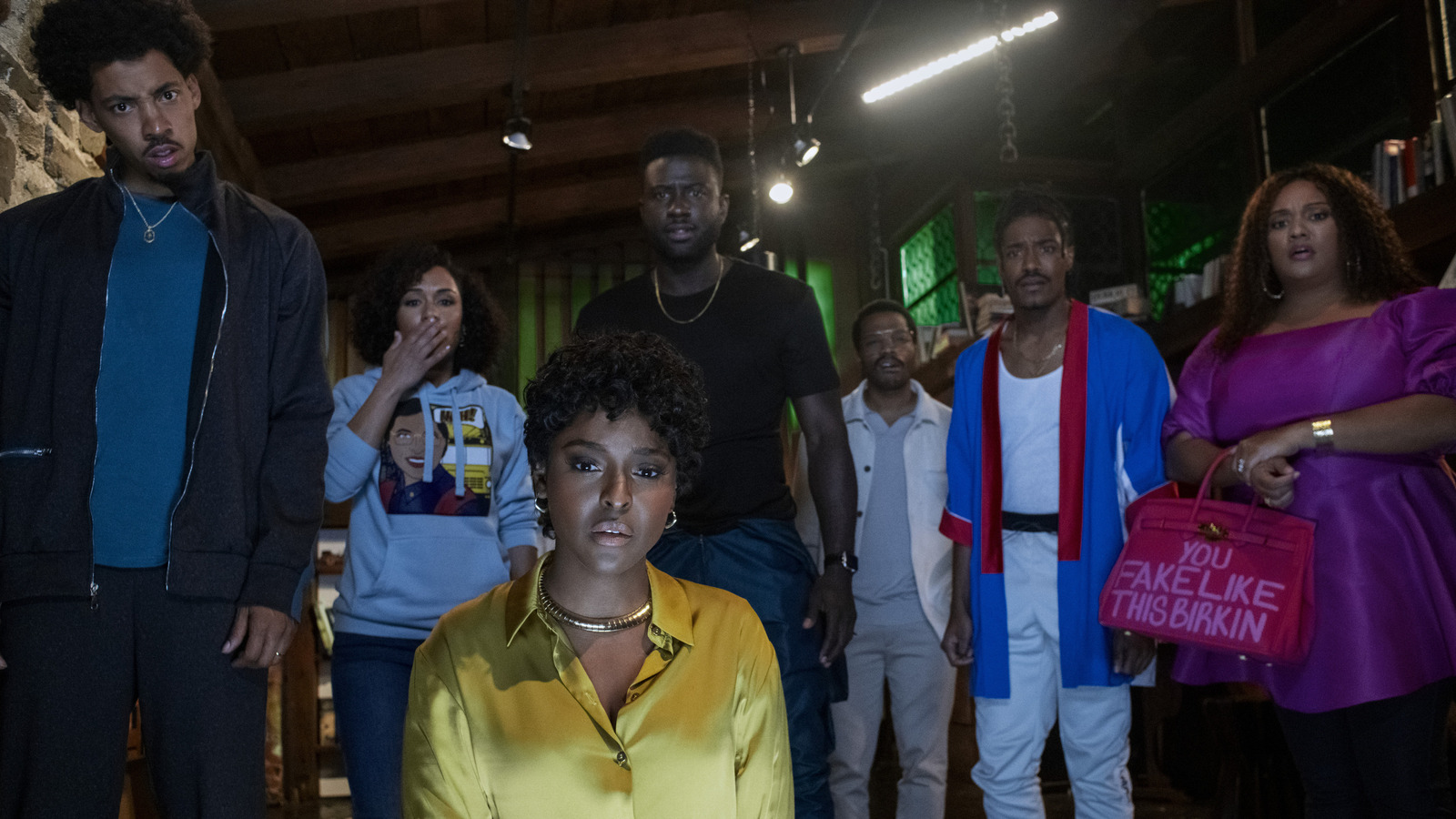[ad_1]

“The Blackening” purposefully has a premise very familiar to the horror genre. A group of friends come together for a reunion for a weekend at a cabin in the woods. What is unfamiliar is that it is a group of Black friends, folks generally off at the fringes of horror, and they are celebrating Juneteenth, with enough booze and molly to have a grand old time. Amongst the group are a pair of on-again/off-again lovers (Antoinette Robinson and Sinqua Walls), a reformed gangster with a white wife (Melvin Gregg), a boisterous partier (X Mayo), a supportive gay friend (co-writer Dewayne Perkins), a woman often teased for being biracial (Grace Byers), and a nerd (Jermaine Fowler), whose invitation is baffling to everyone. All of them are types, and each one is playing exactly into the type. Fowler is the worst offender, someone so self-consciously doing a Steve Urkel riff that it’s distracting.
The group soon discovers a “game room” in the house they are renting, and already set out for them is the titular game is a horrifically racist trivia game that has been devised by a masked killer looking to kill off this group one by one, starting with the two members of the friends’ group who got there first (Yvonne Orji and Jay Pharaoh). With this kind of setup, you would think that the prompts and questions in the game would be related to Black people’s history within the horror genre, but outside of two questions, the game has nothing to do with that. Instead, it opts for so many lazy references to just general Black culture, like whether or not they can remember hip-hop lyrics or name five Black characters who appeared on “Friends.”
The characters’ Blackness may be the reason why they are being targeted, but the actual events of the story have very little to do with it. The structure of the film basically plays out as any other cabin in the woods slasher would, and if the characters do something that normally a white character would do, they wink at it slightly and simply go on to do the trope anyway. “The Blackening” operates as if it’s an insightful satire of Black horror, but the depth of its subversiveness is about as shallow as a teaspoon. That would be okay if the jokes at least landed, but they very rarely do. Outside of a recurring gag about how this group can quietly communicate with one another, I found myself sinking further and further into my seat rather than being lifted up with laughter.
[ad_2]
Source link

